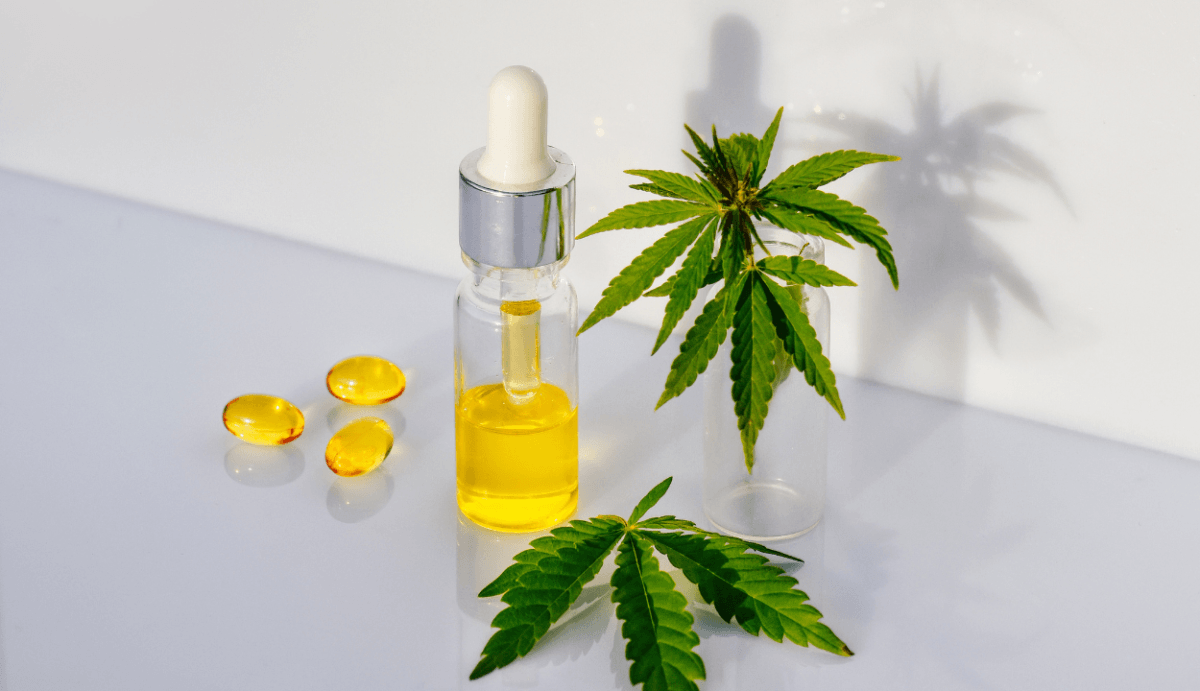Your Cart is Empty
FREE SHIPPING ON ALL ORDERS $75+
We know now that high-THC cannabis has some potential to cause dependency, but what about CBD? After all, hemp CBD is still derived from the cannabis family of plants, but is CBD addictive?
Fortunately, the answer seems to be no, CBD is not habit forming. Research is still ongoing, of course, but leading organizations have suggested that CBD has very little potential for abuse. Here's what we know so far:
As we mentioned, research concerning the habit forming potential of CBD, as well as CBD’s multitude of benefits, is still ongoing. Still, we understand that CBD has unique interactions with the body via the Endocannabinoid System.

Unlike THC, which bonds directly to pleasure centers in the brain and can temporarily boost dopamine, CBD binds indirectly and doesn’t have this effect. Research shows that even though small doses of THC are linked to a dopamine boost, larger doses over time can lead to low dopamine production. Decreased dopamine is frequently linked to addiction.
A 2016 study evaluated the differences in the psychological and euphoric effects between CBD and THC. The study found that CBD had no impact on heart rate, blood pressure, or cognitive function. THC, however, substantially impacted all three areas, and as you probably already know, produced substantial euphoria.
In general, the psychoactive, mind-altering effects of THC are addictive to some people. CBD lacks these psychoactive effects, which arguably reduces its potential to be habit forming for many people.
In 2017, the World Health Organization released a report on CBD that verified these theories, which stated that “evidence from well-controlled human experimental research indicates that CBD is not associated with abuse potential.”
We mentioned that CBD doesn’t impact dopamine production in the same way that THC and other habit forming drugs may. Still, evidence suggests that CBD may indirectly regulate dopamine production by increasing the production of natural endocannabinoids (like anandamide known as “the bliss molecule") in the brain, and specifically in the brain’s “pleasure center.”
Through its regulatory role it may help raise dopamine levels, which researchers theorize could positively impact motivation and reward-seeking behaviors. Thanks to regulatory actions like these, various studies have found that CBD not only has very low potential to be habit forming, but it may also be useful in combating addiction.

A 2015 study found that CBD may be helpful in managing both nicotine and cannabis addiction, while another review found that it may lower the risk of addiction and help combat the likelihood of relapse for newly sober patients.
Some evidence even looks at CBD's potential benefits for managing pain as an alternative to commonly prescribed opioids. One study looked at this interaction by evaluating 97 patients who had used opioids for at least one year to manage chronic pain.
After an 8-week study, over half of subjects were able to reduce or eliminate opioid use after adding CBD to their regimen, while 94% of patients reported an increased quality of life overall.
Experts believe that if CBD can be used in place of opioid medications to manage pain, it may even help curb the opioid epidemic, which is the leading cause of addiction in the U.S.
Although “risk of dependency” may not be listed as a side effect of CBD, many people often wonder if the hemp-derivative has any other drawbacks. The truth is, nearly every wellness product or medication comes with some level of risk, and CBD is no exception.
Various studies evaluated the risks of CBD, and most have confirmed similar results—CBD is generally safe and has very little potential for adverse effects, but some side effects are still possible.
One study that evaluated CBD’s side effects concluded that the safety profile of CBD in humans was “favorable.” In this study, side effects were found to be rare. When they did occur, they were mild, and the most common side effects reported were diarrhea, tiredness, and changes to weight or appetite.
When all research and anecdotal reports are taken into effect, the consensus is the same. CBD side effects are uncommon, but the following side effects are possible in some cases, especially when taking too much:

Now that your concerns about CBD addiction are out of the way, you can grab some high quality CBD without worry. You can buy CBD online from any state where it’s legal and have it shipped to your door, but it’s important that the CBD you buy is high-quality and third-party lab tested.
We recommend checking out our Vitality CBD Collection, a collection of edibles, oils, and more that are each uniquely optimized for your daily routine. All of our third-party lab test results are on the product page for you to view before you buy, or you can contact us if you have any questions!
Yes, CBD can interact with other medications, including over-the-counter medications, herbal products, and prescription medications. It is important to talk to a doctor before using CBD if you are taking any other medications.
While it is highly unlikely, an overdose on CBD is possible. Because unlike other substances, the toxic dose (20,000 mg of CBD), is not widely considered to be lethal. The symptoms are typically mild and include drowsiness, stomach upset, and changes in appetite or weight.
CBD interacts with the body through theEndocannabinoid System, which is responsible for regulating various physiological processes such as sleep, appetite, and mood.
Comments will be approved before showing up.



